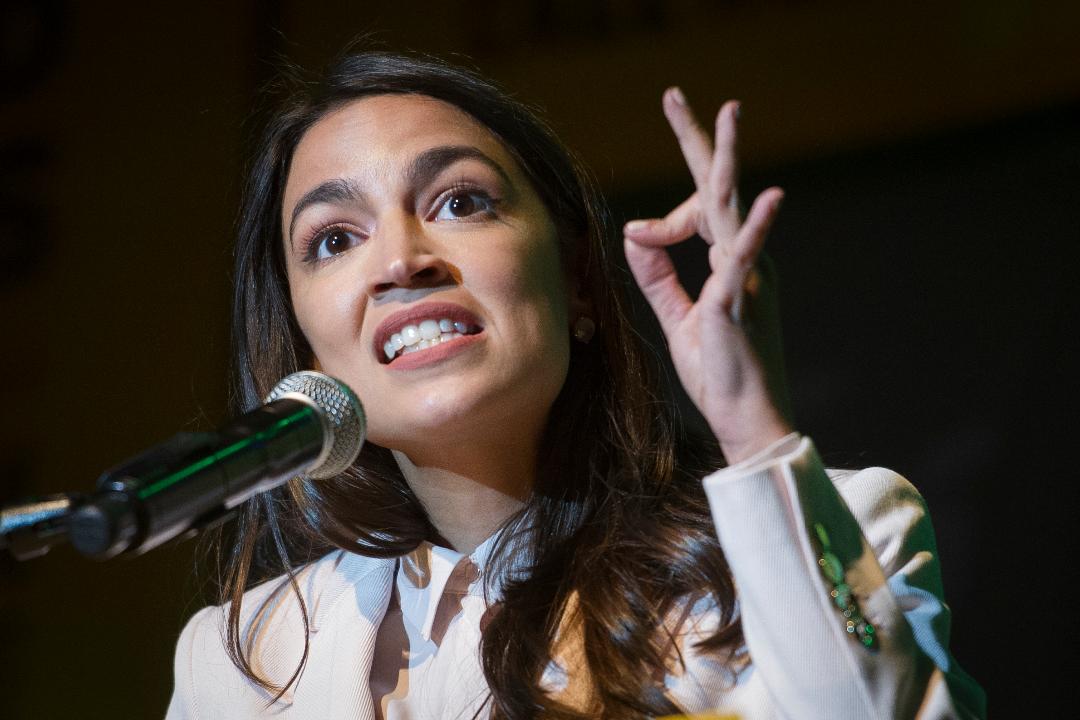Why socialism is so popular among young people
If polls are to be believed, so-called “democratic socialism” is reaching new heights of popularity with millennials—and with the election of people like Rep. Alexandria Ocasio-Cortez, D-N.Y., America’s free market foundations are increasingly under attack. It’s a problem that’s been a long time coming—and the public school system bears part of the blame.
Consider whether you agree with this statement: “I prefer living in a socialist country.” According to a recent Harris poll, 49.6 percent of young Americans share that view. More specifically, an astounding 61 percent of 18-to-24-year-olds have a favorable reaction to socialism generally.
The generational shift becomes apparent when you look at senior citizens—those who have been around long enough to know from memory the destructiveness that socialism has wrought. Among this demographic, the favorable view of socialism plummets to a mere 27 percent.
What can explain this newfound interest in socialism among the rising generation?
Part of the answer lies in the cultural popularity of the term, even if those spreading it around don’t fully grasp its implications. This is evident, for example, among those who wear Che Guevara t-shirts without even knowing that the man whose face dons their chest was a brutal murderer who helped destroy his country’s economy. This contagious ignorance is like seeing a group of people singing along to a song when they don’t understand the lyrics.
The fun-sounding songs of socialism
And that leads to the source of the problem: the education establishment and its ineffectiveness—or unwillingness—in teaching the importance of free markets and the destructiveness of socialism as evidenced throughout history. Teachers today aren’t helping students learn the alarming lyrics to the fun-sounding songs of socialism.
I encountered a video last year featuring brief interviews of high school seniors about a range of basic civic concepts. One would assume that after years of schooling, these students would be at least moderately proficient in basic questions like what the various branches of government are, what inflation is, and what socialism means.
And yet, the answers pointed to a spectacular failure. One after another, these seniors looked dazed and confused, most of them either admitting ignorance or attempting to guess.
Is it any wonder that Ocasio-Cortez has risen in popularity? A fellow millennial fighting for free things is quite alluring to an army of young voters who lack the intellectual depth to know the inherent downsides that come with such a policy position.
When your life is still ahead of you, it’s tempting to want to live at others’ expense and seek an easy path in life, to avoid the risk and unpredictability that the free market involves. Capitalists are telling the rising generation to get a job, while so-called “democratic socialists” want the electorate to be the equivalent of freeriders living in their parents’ basement for decades to come.
Balance is important
The problem stems not so much from curriculum that conveys contempt for capitalism and praise for socialist policies, but from the gatekeepers whose job it is to expose children to historical facts and a balanced point of view. A teacher with a left-leaning view of the world, for example, is unlikely to extol the virtues of capitalism and point out the historically disastrous results seen in countries that embrace socialism.
To be fair, the same could be said of a right-leaning teacher whose bias leads to a classroom environment where conservatism was overtly preached. Balance, then, is important—but do children in today’s school environment have it?
Put more specifically, do teachers span a wide range of political ideologies so as to ensure a variety of biases and viewpoints are affecting young minds? This question is laughable on its face, as it is widely known that the education establishment has veered solidly left.
Consider college, where young adults enter their formative years to embrace a new identity and determine what they believe, apart from their parents’ purview. One analysis of over 8,000 college professors from around the country revealed that 78.2 percent of the academic departments surveyed had “either zero Republicans, or so few as to make no difference.” Such political homogeneity cannot be expected to produce a climate in which the establishment’s opposing viewpoint is given fair due.
CLICK HERE TO GET THE FOX BUSINESS APP
The increasing popularity of socialism is a direct result of the decreasing exposure to free market ideas among the rising generation—chased out, as they have been, by a leftist education establishment itself built upon a socialist foundation. Parents who don’t want their children living in their—or the taxpayer’s—basement for decades to come should take note, and take action.
Connor Boyack is president of Libertas Institute, a free market think tank in Utah, and author of the Tuttle Twins children’s series which teaches young readers about free market ideas.




















